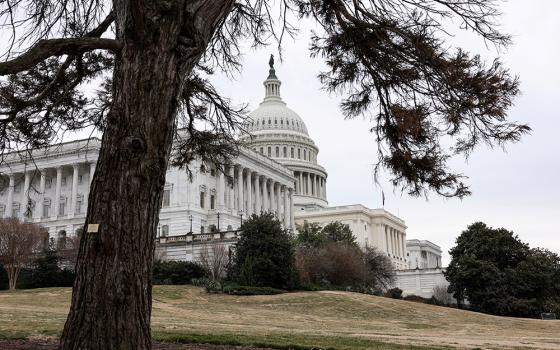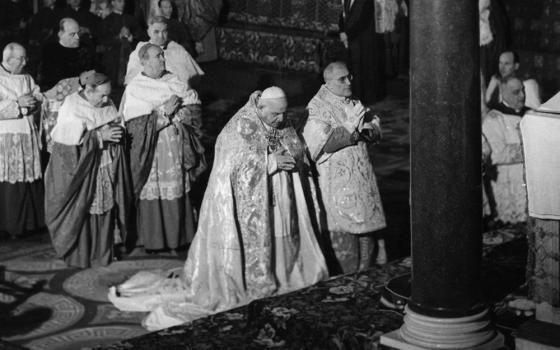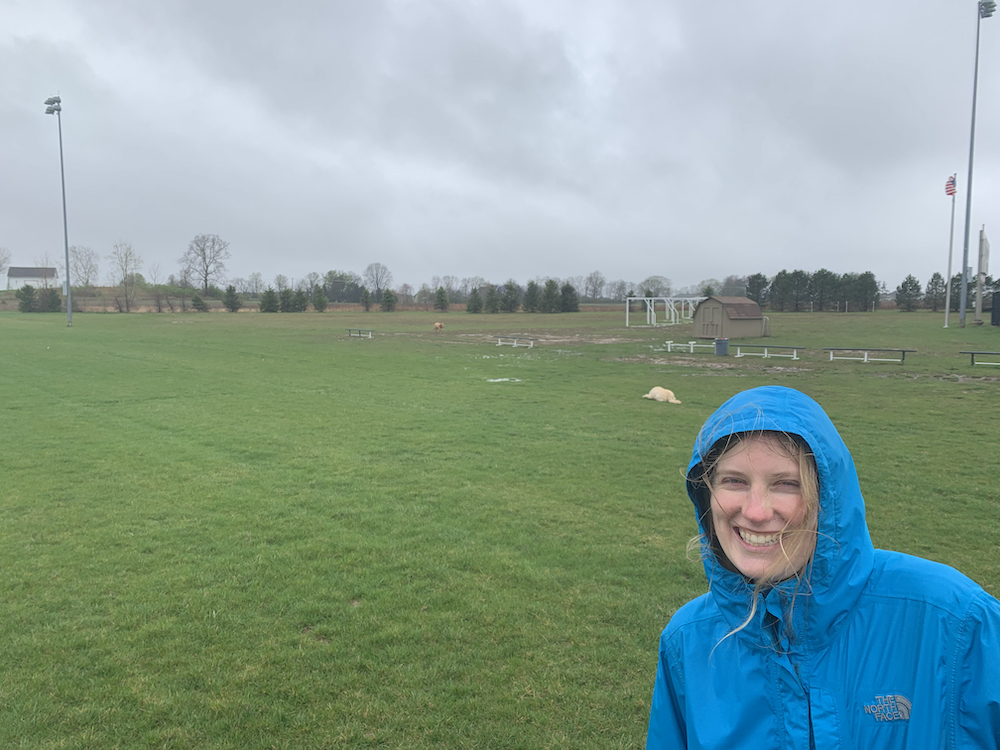
Spring break was a time to rest, catch up with friends and family, and, of course, spend time outdoors. One morning, I planned to go for a run, and it turned into a multiple-hour hike along a river. I enjoyed having uninterrupted time to spend outdoors — rain or shine. (Maddie Thompson)
Editor's note: Notes from the Field includes reports from young people volunteering in ministries of Catholic sisters. A partnership with Catholic Volunteer Network, the project began in the summer of 2015.
I am incredibly grateful to have been fully vaccinated for just over a month now. To all those who worked tirelessly to make numerous COVID-19 vaccines a reality, my thanks have no limits. However, receiving the vaccine was a strange, emotional experience for me. My gratitude and excitement at feeling safer when I interact with students and staff in person each day were held in tension with my guilt and worry about all those who would continue to live without this protection because of inequality and lack of access.
A friend reminded me that despite major hiccups in the distribution process as well as the just prioritization of more at-risk populations in certain states, we are all worthy of receiving the vaccine. This reminder of our collective worth challenged me to focus on our innate human dignity and what honoring each person's dignity asks of us.
We all deserve to feel safe, to have access to food, shelter, clothing and health care. Yet we know this is not reality.
Advertisement
Because I was vaccinated, I had the opportunity to safely travel out of state over Collier High School's spring break. After months of living alone as the single Good Shepherd Volunteer at my service site, traveling back to the Midwest to see friends and family was refreshing. I spent the break walking, biking, seeing friends, playing with dogs, and eating good food. Almost every loved one I encountered was either fully vaccinated or had received one dose of their COVID-19 vaccination. To be able to embrace my home community with a hug was somewhat surreal.
In New Jersey, I spend most of my meals eating alone across from a lunchroom filled with students or in the convent with the Sisters of the Good Shepherd. Being able to share meals with my best friends from college and family members was a gift. These moments together reminded me just how easily I forget the sacredness of breaking bread, the symbol of a dinner table, the privilege of a full plate, the holiness of laughing in the kitchen, and the value of a home-cooked meal.
My relief at being vaccinated and the comfort of being at home with friends and family allowed me to truly take a momentary break from serving and supporting students each day. Being surrounded by loved ones and taking time to truly rest, I found a renewed sense of purpose in my work as a volunteer. I concluded break eager to support our students and aid them in their hard work of learning, growing and practicing healthy habits.
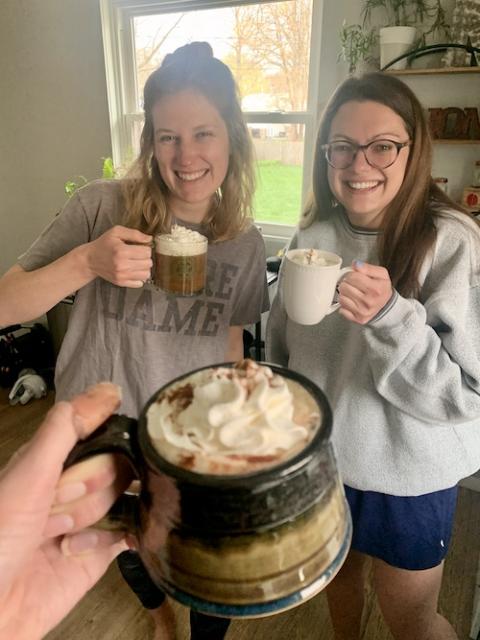
Over spring break, I was able to catch up with some of my best friends from college, Madelyn Luddy, right, and Katie Kerby, who is taking the picture, over a morning coffee. (Courtesy of Katie Kerby)
While break was filled with connection, joy and relaxation, I prepared to return to school on a much more heavy and somber note as I received the news of another Black man dying at the hands of a white police officer. The killing of Daunte Wright on April 11 added to a year of great loss. This tragedy reminded me that while I was busy breaking bread with friends and family, the world was breaking bodies and robbing loved ones of their son, brother and father.
The reality that I exist in a world filled with tension and crippled by injustice continues to baffle me. I am sickened knowing that while I was spending time with family and friends, Daunte Wright's family and friends were mourning his loss.
What do we do with this world filled with tension? How do we respond to the lack of justice we see as Black bodies continue to be lost at the hands of white individuals? How do we allow ourselves to feel joy, find purpose in our work and celebrate small victories when the world continues to bleed with injustice, racism and violence? I honestly do not know.
When I received this tragic news as I returned to school, I did not have words to respond. I still do not have adequate words to respond. How do we try to make sense out of this senseless brutality? Why would we try? With the news of Daunte Wright's death, I found myself moving slower, taking deeper breaths, and trying to wrap my head around how crooked the world feels as violence, injustice and racism continue to make headlines. I cannot imagine how tired, furious and hopeless the targets of these atrocities might feel.
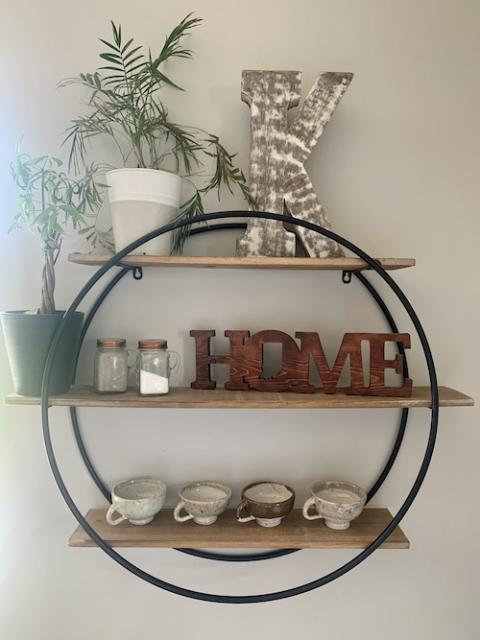
While breaking bread with friends, I got to see my pottery displayed in my friend's house. It was so nice to be in another person's home and connect with old friends. (Maddie Thompson)
I remembered a quote from Henri Nouwen in his book The Return of the Prodigal Son as I reflected on the destruction caused by individual and collective racism:
It might sound strange to consider grief a way to compassion. But it is. Grief asks me to allow the sins of the world — my own included — to pierce my heart and make me shed tears, many tears, for them. There is no compassion without many tears. If they can't be tears that stream from my eyes, they have to be at least tears that well up from my heart.
As I approach the final stretch of my volunteer year, I am reflecting on how a year engaged in service and committed to social justice is not to be left in a vacuum. As a Good Shepherd Volunteer, I hope to embody the tenets of social justice, community, simplicity and spirituality in all that I do: inside and outside my service site, during and after my volunteer year, and in moments of celebration and moments of mourning. We are our siblings' keeper, and we need to take this responsibility seriously.





